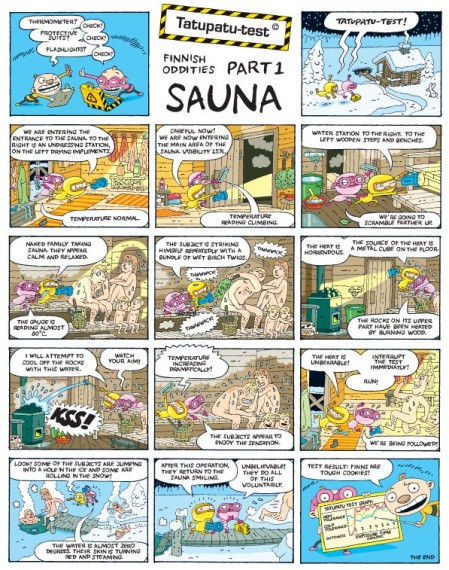Archive for March, 2008
The light itself
Issue 1/2008 | Archives online, Essays, On writing and not writing

What should you do when writer’s block strikes? Lie down and wait for inspiration to return, Petri Tamminen suggests
All autobiographical depictions of writer’s block are fundamentally flawed and false. If you happen to be suffering from writer’s block, these accounts make for painful reading.
The wittier, more carefully crafted and closely observed an account the writer gives of his affliction, the more gut-wrenching it feels. It’s like treading water and preparing to drown and having to listen to someone in dry clothes standing on the deck of a ship recalling a close call he had back in the seventies.
On the other hand, when you’re suffering from writer’s block everything annoys you. Good books seem overwhelmingly good, so much so that you realise you can never achieve that level of greatness. Similarly, bad books seem so overwhelmingly bad that you wonder why anyone bothers reading books and realise that it’s pointless trying to write one. More…
Change the words
30 March 2008 | Fiction, poetry
Poems from Bul bul (‘Bulbul’, WSOY, 2007). Introduction by Karri Kokko
Opening
Which street was it? A question in a poem doesn’t demand an answer, it’s
itself, like that accurate filter, a blood-soaked liver –
The city was a giant, budging my brains, the fireworks’
ash trailed down to earth, the clowns screeched, a book’s face
was waiting like a child’s face,
and they began swarming out, releasing themselves from signposts,
neon signs, from the pages of a closed book (smelling of a dried
ranunculus), from graves, from a woman’s abhorrent womb – More…
Mothers and sons
Issue 1/2008 | Archives online, Fiction, Prose
Extracts from Helvi Hämäläinen’s novel Raakileet (‘Unripe’, 1950. WSOY, 2007)
In front of the house grew a large old elm and a maple. The crown of the elm had been destroyed in the bombing and there was a large split in the trunk, revealing the grey, rotting wood. But every spring strong, verdant foliage sprouted from the thick trunk and branches; the tree lived its own powerful life. Its roots penetrated under the cement of the grey pavement and found rich soil; they wound their way under the pavement like strong, dark brown forearms. Cars rumbled over them, people walked, children played. On the cement of the pavement the brightly coloured litter of sweet papers, cigarette stubs and apple cores played; in the gutter or even in the street a pale rubber prophylactic might flourish, thrown from some window or dropped by some careless passer-by.
The sky arched blue over the six-and seven-storey buildings; in the evenings a glimmer could be seen at its edges, the reflection of the lights of the city. A group of large stone buildings, streets filled with vehicles, a small area filled with four hundred thousand people, an area in which they were born, died, owned something, earned their daily bread: the city – it lived, breathed….
Six springs had passed since the war…. Ilmari’s eyes gleamed yellow as a snake’s back, he took a dance step or two and bent over Kauko, pretending to stab him with a knife. More…
No place to go
Issue 1/2008 | Archives online, Fiction, Prose
Extracts from the novel Lakanasiivet (‘Linen wings’, Otava, 2007)
The clothesline swayed in the wind. Helvi closed her eyes and felt herself flutter into the air with the laundry. She flapped her white linen wings, straining higher, now seeing below the whole small peninsula city, its damp rooftops glittering in the morning sun, the blue sighs of the chimneys, the steamboats toiling on the lake and the trains chugging on their tracks. The whole of heaven was clear and blue; only far off in the east were there white pillars roiling – whether smoke or clouds, Helvi could not tell.
She flew north on her linen wings and saw the great bridges leading to the city, on whose flanks the hidden anti-aircraft batteries gasped the fumes of gun oil and iron, and continued her journey over the land, following the straight lines of the telephone wires. She flew over wooded hills and deep green fields, finally arriving on the slope of the great hill where her daughter now lived, in hiding from the war. More…

